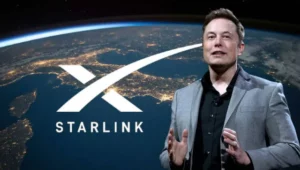Amazon’s founder, Jeff Bezos, has successfully launched the first two satellites for Project Kuiper, the e-commerce giant’s ambitious endeavor to create an extensive satellite network capable of providing global internet coverage.

The launch of these satellites took place on a United Launch Alliance LLC-operated Atlas V rocket from Florida at 2:06 PM local time last Friday. Although the mission is still in progress, it remains to be seen when the satellites will be deployed from the rocket.
Project Kuiper’s overarching objective is to deploy 3,326 satellites into low Earth orbit. These satellites will be designed to deliver broadband internet services to regions on Earth, mirroring the approach taken by Elon Musk’s SpaceX Starlink. The pair of satellites, KuiperSat-1 and KuiperSat-2, launched on Friday, serve as test satellites, enabling Amazon to demonstrate their capacity to transmit and receive broadband signals.
This mission has faced significant delays. Amazon initially aimed to launch these satellites a year ago using a different, experimental rocket. However, the company changed its choice of launch vehicle for these satellites several times, ultimately opting for ULA’s reliable Atlas V rocket to expedite getting the satellites into space.
To adhere to its licensing agreement with the Federal Communications Commission, Amazon must deploy half of its Kuiper constellation by 2026.
These two relatively small test satellites, weighing approximately 1,300 to 1,550 pounds (600 to 700 kilograms) each, were the sole payloads aboard the Atlas V rocket. The Atlas V rocket can transport up to 44,000 pounds of cargo to low-Earth orbit.
Commenting on this choice of launch vehicle, Brian Weeden, the director of program planning for the Secure World Foundation, a nonprofit dedicated to space sustainability, remarked, “It’s like using a tractor-trailer to transport a couple of suitcases, but I don’t think they had any other choice.”









